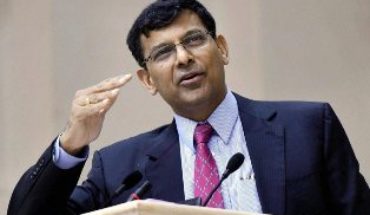By Dominick Rodrigues
Mumbai, Nov 19: Industrial recovery in the present COVID-19 era needs to be supplemented with smooth implementation of much-needed reforms, even as the country’s industry and businesses are displaying a positive resilience and being upbeat, according to Vijay Kalantri, President of All India Association of Industries and Vice-Chairman, World Trade Center.
Highlighting a positive note on the country’s economy opening up, Kalantri told this correspondent that industrial activity is rebounding and businesses are showing resilience to the after-effects of the COVID-19-induced crisis.
Highlighting latest data on Index of Industrial Production, the AIAI president noted that electricity was one of the least affected sectors by the Covid-19 crisis and mining activities have been dented, whereas manufacturing and all sectors in general have started recovering closer to their Jan ‘20 level.
“Manufacture of pharmaceuticals showed a sharp recovery post-lockdown, while manufacture of chemicals and chemical products, and rubber and plastic products are showing a steady recovery,” he said.
“Manufacture of food products was one of the least-dipped sectors as these items belong to the essential commodities category, and therefore, their operations weren’t much affected by the lockdown. However, production hasn’t been restored to Jan ‘20 level — suggesting weakening of demand. Similarly, manufacture of beverages and textiles are yet to return to the Jan ‘20 level, whereas manufacture of wearing apparel has lost steam.”
“While manufacture of basic metals is returning back to normal, manufacture of other non-metallic mineral products has yet to catch up. Although manufacture of coke and refined petroleum products did not fall substantially during the lockdown, production in Sep ‘20 is way below Jan ‘20 level.”
“Manufacture of machinery and equipment n.e.c. and manufacture of fabricated metal products are witnessing a sharp recovery. Similarly, manufacture of computer, electronic and optical products, electrical equipment, motor vehicles, trailers and semi-trailers, and other transport equipment are bouncing back.”
“The above data suggests that while demand for sophisticated products is recovering, that from the informal sector for necessities may be lagging behind. This anomaly needs to be rectified immediately as much of our population belongs to these sections of the society and contributes towards enhancing primary demand.”
“Further, as a majority of our population is engaged in agriculture and labour-intensive manufacturing, as also low-skilled construction activities, it becomes important that their loss of incomes is met with by reviving these sectors, thereby creating a multiplier effect on the economy.”
“While enhancing the emergency credit line guarantee scheme to 26 stressed sectors can help ease the challenges created by the COVID-19 crisis, MSMEs face delays in payments by large corporates, as also have the lesser rights in the insolvency proceedings of stressed corporates. These issues need to be addressed quickly in order to protect our MSMEs from going bust.”
“The government has further enhanced the scope of the Atmanirbhar Bharat package and extended the Production-Linked Incentive Scheme to additional 10 Champion sectors. The objective is to promote large-scale manufacturing in India in order to reduce import dependence and make our exports competitive in the global market, while also increasing our participation in global value chains.”
“However, the intent of the government can fructify, provided we address our land and labour issues, and improve on ‘Ease of Doing Business’ at the local level. In order to attract FDI, regulatory compliances need to be eased and ‘Plug-and-Play’ infrastructure made readily available by creating land banks and developing physical infrastructure. Moreover, labour laws need to become investor, as well as worker-friendly so that they can benefit both these stakeholders, and skilling of labour needs to be encouraged.”
“While the success of the reforms announced will lie in their implementation, the government also needs to ensure that in the process of bringing in economies of scale to make our industries competitive, we should not foster private monopolies and oligopolies that can exploit our people in long run, and increase the divide between the rich and the poor,” he said while expressing hope that these suggestion would be taken into consideration by the concerned authorities.






